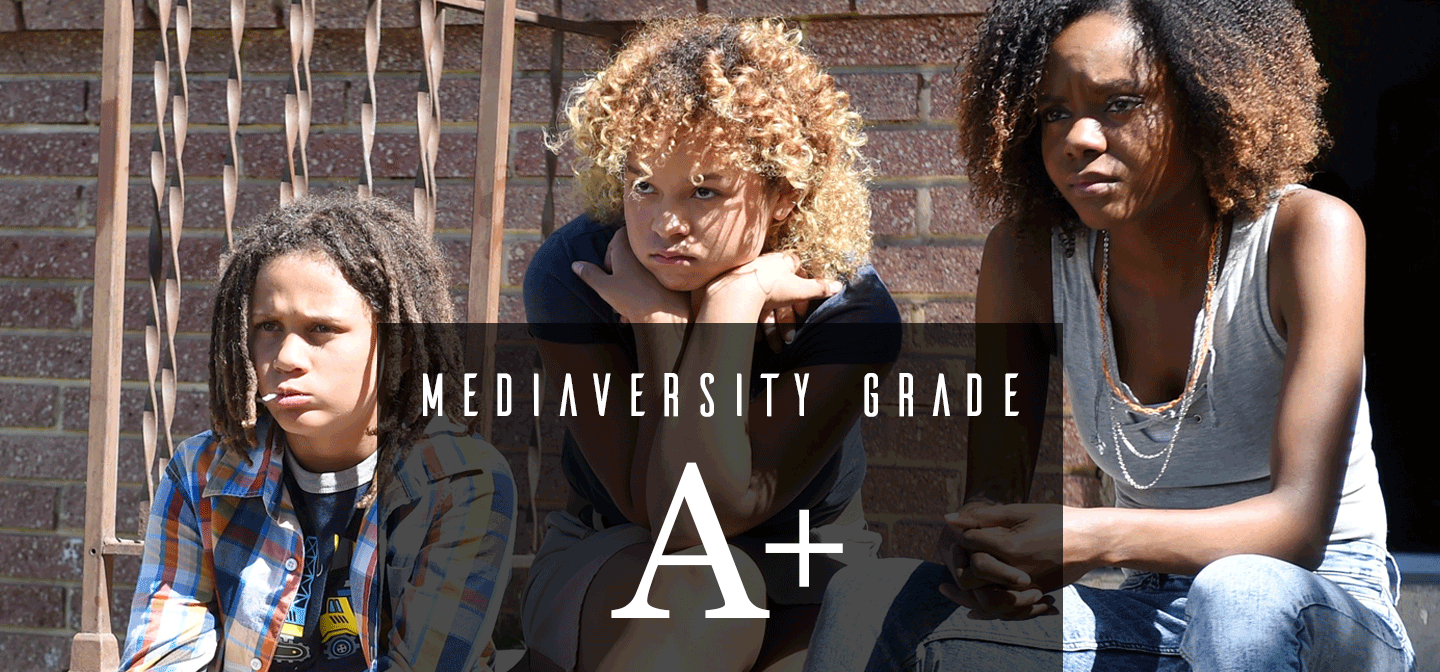Wildhood
“By virtue of so many Mi’kmaw characters, no single person in Wildhood has to shoulder the brunt of ‘representation.’”
Title: Wildhood (2022)
Director: Bretten Hannam 🧑🏽🇨🇦 (L’nu) 🌈
Writer: Bretten Hannam 🧑🏽🇨🇦 (L’nu) 🌈
Reviewed by Li 👩🏻🇺🇸
Technical: 3.75/5
Roam the lush, overgrown train tracks of traditional Mi’kmaw territory (Nova Scotia) in Wildhood, a queer coming-of-age road movie that premiered at Toronto International Film Festival today. Writer-director Bretten Hannam, who is Two-Spirit and L’nu, brings a simple story to life by filtering it through an Indigenous lens.
The familiar structure finds a teenager, Link (Phillip Lewitski), escaping the abuse of his cartoonishly evil father with younger half-brother Travis (Avery Winters-Anthony) in tow. Along their journey to find Link’s Mi’kmaw mother, romance blooms with a fellow wanderer, Pasmay (Joshua Odjick), who doubles as a guide to Link’s Indigenous roots as he teaches the brothers Mi’kmaw language and customs. Naturally, the brothers run into unique personalities along the way, like pastry chef “Smokey” (Michael Greyeyes) or community elder Elsapet (Becky Julian).
Surprises are nowhere to be found and certain themes can feel heavy-handed: The contrast between white Canadians and the Mi’kmaq are starkly drawn through devices like the fluttering of a large Canadian flag before a racist white woman stymies Link’s search for his mother; in another scene, an unsubtle contrast is made between a deer carcass that forlornly peers at Link from the back of his white uncle’s pick-up truck and the dead porcupine that’s later buried by Pasmay, Link, and Travis with reverence in a sunlit ritual. Regardless of how loudly the film telegraphs its messages, however, it still strikes true. Wildhood floats like a bucolic dream that delivers family drama, romance, and a rich celebration of Mi'kmaw culture.
Gender: 3.75/5
Does it pass the Bechdel Test? YES, but barely
Hannam’s camera suffuses Wildhood with deep intimacy, lending a “female gaze” through vulnerable closeups and textural lovemaking, soil and water on skin as bodies rock together in shadow. The inclusion of a Two-Spirit director goes far in this category behind the lens, with production notes shared with journalists providing yet more depth: In an interview, Hannam states that ”Pasmay is a 2S person and he knows this, while Link is someone who is moving into that space, but he doesn’t know the depth or meaning of it yet.” However, most viewers don’t have Wildhood’s press notes handy.
On screen the film follows a traveling unit of three (ostensibly cisgender) young men. The film barely scrapes by a single Bechdel test pass, and even then one of the speakers is out of frame, heard but not seen. Narratively, women arrive in symbolic roles only: Link’s mother Sarah (Savonna Spracklin) appears as a blurred memory for most of the film, more of a destination than a full-fledged character. Meanwhile, linguist and Mi’kmaw preservationist Julian brings commanding heft to her performance as Elsapet, but she functions as a helper for Link’s self-discovery.
Race: 5/5
With a L’nu storyteller directing Indigenous actors Lewitski (Mohawk) as Link and Odjick (Anishinabe-Cree) as Pasmay, and yet more Indigenous talent rounding out supporting and minor roles, a sense of lived experience reverberates throughout the film. You can see the care taken with every spoken word of Mi’kmaw; in the rhythmic footwork of a pow wow dance; and scenes of everyday Mi’kmaq where teens shoot hoops and folks of all ages come together to cook a communal dinner. Reclamation of Indigenous tropes pass with similar ease, like when a resourceful raccoon takes off with the brothers’ comestibles: Link shouts at Pasmay to “do something!” but the other teen merely laughs, “I can’t sing the fucking ‘Colors of the Wind’ to it!”
By virtue of so many Mi’kmaw characters, no single person has to shoulder the brunt of tokenization. Homophobic worldviews, held by Pasmay’s family who kicked him out for being attracted to men, coexist with the Tiger Lily, a queer bar helmed by Two-Spirit purveyor Mother Mary (John Sylliboy) where drag queens and genderfluid denizens while away an evening under neon lights. The fact that Wildhood crams so much range among its Mi’kmaw characters, while never feeling overstuffed, serves as one of its biggest triumphs.
Bonus for LGBTQ: +1.00
The sexual awakening of Link will feel familiar to anyone conversant in queer coming-of-age stories, as he and Pasmay fall in love despite rejection by some of their more narrow-minded family members. While no one is arguing that coming out isn’t an important process for queer people, movies overrepresent this particular theme. As a result, Link’s internalized homophobia can feel wearisome to watch. At one point, he refers to a shop employee as “a d-ke in a plaid shirt” only to be snapped at by Smokey who says defensively, “that was my nephew.” In another scene, a Mi’kmaw teen calls Link and Pasmay “f--gots” and is quickly chastised by Elsapet. But if you can sit through these rote “teachable moments,” Wildhood still provides a compelling queer couple. Meaningful looks that sizzle with chemistry, a supportive younger brother, and a beautifully shot love scene all combine into an incredibly sweet romance. Better yet is knowing how deeply inclusive the film is behind the lens, making it a no-brainer that the Wabanaki Two Spirit Alliance calls itself one of Wildhood’s community partners.
Bonus for Religion: +0.50
Discussions around religion never explicitly come up, but Pasmay, Sarah, and Elsapet each embrace Indigenous traditions anchored in spirituality. Pasmay carries his regalia with him; the camera pauses on a dreamcatcher hanging from Smokey’s windshield; and in its most overt moment, the white Canadian woman who temporarily housed Link’s mother reveals to him that Sarah was discharged for “holding onto beliefs and traditions that were problematic.”
Mediaversity Grade: A- 4.67/5
Wildhood leans on familiar story beats and a simplistic script. But these shortcuts cede room to its biggest charms: impressive performances, an electric romance, and a palpable desire to showcase the breadth and diversity of Mi’kmaq. In that overarching goal, Hannam succeeds resoundingly.




